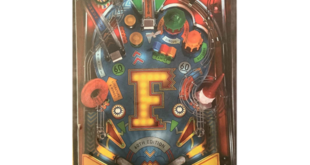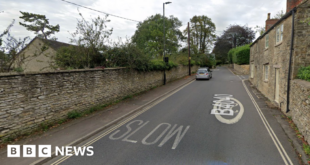The following is from Nathan Newman’s debut novel How to Leave the House. Newman is a novelist and filmmaker based in London. Their short stories have won awards and been published in literary journals and anthologies. A television adaptation of How to Leave the House is being developed by Freemantle, with Newman set to write the episodes.
Despite all evidence to the contrary, Natwest was alive. His body was slumped in the hallway of his mother’s house. Limbs were splayed. Cowlicks were present. The carpet embossed an ominous pattern onto his cheek. But there was breathing. And gently, reluctantly, he awoke. It took him a moment to recollect: he’d waiting in the hall overnight, hoping to catch the postman during his rounds first thing in the morning. At some point he must have lost consciousness, because now it was nearly 11:00 a.m.
Article continues after advertisement
Natwest rose to his feet, simultaneously yawned and stretched, felt dizzy and returned to the floor. His second attempt was more successful. When he was upright and sensible, he regarded the detumescent bump of his falling erection with a good deal of scepticism.
The package.
He’d ordered it the day before, and it was essential the package ended up in his hands and no one else’s – hence the overnight vigil in the hallway. To risk his mother opening it was to risk a calamity greater than any he’d previously experienced in his short life. He wouldn’t leave town until it was securely concealed in his suitcase. The alternative – any alternative – was too distressing to consider, so when Natwest opened the front door he fully expected to see the package before him.
But there was nothing there. He closed the door, waited for half a minute and opened it again. Still no package. After a brief spell of nausea, he stepped outside and looked in the foodwaste bin where the postman left the red notes that said, Sorry we missed you – an odd place to put them, he thought, because there was a perfectly reasonable letterbox. Inside the bin there were no red notes, only the trimmings of a root vegetable and the flotsam of some brown fruit that he chose not to identify. It was the first instance of the day in which his inflexible aesthetic principles, which privileged the ugly and the difficult over the pretty and the satisfying, failed to align with his sense of smell, for the odour of the rotting fruit was too much for Natwest’s delicate nose and he shut the bin lid.
His fears had been realised, and he may or may not have punched the wall in frustration. He ran down the short list of possible explanations: a wrong address, a computer error, an untrained postman, an exploded Royal Mail van. No doubt the reason for the missing package would be described as a force majeure, or some other European excuse. He called it Royal Mail doing exactly what you expect, which is never what you want. Humiliation, which was lurking around the corner of his life at all times, was now very much on his doorstep.
Natwest tried to look for positives, and could only find the sun, miraculously present in the sky. There was some pleasure in the warmth on his face, and the way the light generated interesting shadows and odd Rorschach shapes across the surface of the road. His door was one of dozens that lined the street, here in this unexceptional Midlands town in which he’d spent the entirety of his short life – and which he now desired, more than anything else, to leave.
*
On the other side of the road, Natwest spotted an attractive woman waiting patiently while her slobbering German shepherd took a large dump on the pavement. Despite the breed of dog, and the heat of the morning sun, the woman had chosen to dress the animal in a rainbow sweater – and while Natwest expressed his disapproval by imperceptibly shaking his head, the dog expressed its Gay Pride by staring him in the eyes as it confidently emptied its bowels. He waited for her to do the honourable thing and remove the excrement from the footpath, and yet the moment the dog finished its business the woman turned up her collar and started off down the road. Natwest could have left it there, gone back inside and resented her for a little while before returning to his own problems, but he noticed something shiny and potentially expensive fall out of her pocket. His first instinct was to punish the woman for the offending turd, but after a few seconds his better nature prevailed and he crossed the road to retrieve the fallen object for her.
He was disappointed to discover that it was the shiny wrapper of a chocolate bar, and that the woman was too far away for him to complain. The front of the wrapper depicted a slender penguin, and Natwest’s Art Brain immediately connected the image with van Eyck’s Arnolfini Portrait, as the penguin’s dark coat of feathers unquestionably resembled that of the eponymous Italian merchant in the revered fifteenth-century oil painting. Anyway, he thought it was an overrated work of art – the Arnolfini Portrait not the Penguin chocolate bar – and it was impossible to take it seriously because of the freakish canine at the bottom of the picture, apparently meant to symbolise loyalty.
‘Oi! Clean up your dog shit! You can’t leave it on the pavement like that!’
The man’s voice had come from one of the houses in front him, and Natwest searched the windows for its source. ‘Don’t just stand there! Clean it up, mate!’ – and now the voice came from a different direction.
‘I can’t!’ Natwest shouted into the ether. ‘It wasn’t my dog!’
‘You’re standing right by it! I don’t see anyone else!’
‘But it wasn’t me!’
The voice laughed then, and replied in booming, mocking tones: ‘I hope it wasn’t you!’
‘I mean it wasn’t my dog! I don’t even own a dog! This has nothing to do with me!’ But there was more laughter, and soon Natwest found himself screaming at the houses. ‘Why don’t you come down here and clean it up yourself! How about that!’
This last comment appeared to silence the complaints, for there was the sound of a window closing, and then an eerie quiet. He glanced down at the turd on the pavement – only for a second – and returned inside without cleaning it up.
*
Back in the hallway, he checked the confirmation email from Royal Mail. He removed the phone from his pocket in a beautifully fluid motion, but the device was so thin – was it usually this thin? – that it slipp d from his hand.
He always expected it to fall in slow motion. Instead it collided with the wall and bounced onto the floor, adding a sizeable crack to the centre of the screen. He cursed the slimness of his phone and the weakness of his grip, then swiftly pledged to buy a phone case later that day.
He opened the Mail app. Apparently the package had been delivered this morning, Friday 17 September, at 9:24 a.m. But it was 11:00 a.m., which meant someone was lying. In despair, he leant against the floral print in the hallway and his eyes followed the lilies that climbed the opposite wall towards the white, blank ceiling. He noticed it was the same lily design, repeated a hundred times over. For some reason he’d always thought each flower was unique – how odd to notice the opposite, today of all days.
*
This morning, the most important thing was to find out where his package had gone. His first thought was that someone had tampered with it – and here Natwest allowed himself a rare smile, for it had been several months since anyone had tampered with his package. It brought to mind Georgie’s Falstaffian erection, with its glorious surplus of foreskin. His own penis stirred in unison with the image. Once the package was found, he thought, there would be time to hook up with someone before the day was through.
He was pacing back and forth in the hallway like an angry cartoon, and when he registered this he planted his feet firmly on the carpet and resolved not to move, because he was neither a fool nor a comedian. He was an intellectual. His mind operated at the highest efficiency. His discernment was unparalleled.
But why was he bleeding?
He watched the sin le red droplet run down his thumb where a tiny glass splinter from the cracked phone screen was embedded in his skin. He flicked the shard away, put the bloody thumb in his mouth and sucked at the wound.
‘Natwest, what are you hanging around the door for?’
It was his mother, gliding down the stairs in her orange nighty. Leighton’s Flaming June, he thought. Then he felt ashamed of himself and tried a casual remark. ‘It’s almost eleven. You’re up late.’
Their hands lightly touched as she passed by. ‘I took the day off work. Wanted to be here for your last hurrah.’ Then she grinned and disappeared into the kitchen.
‘Did you hear the postman this morning? I’m waiting for a package.’
‘You’re shouting, Natwest. I’m right here. And what’s in the package anyway?’
He pretended not to hear the question. Apparently the wound had started bleeding again because his thumb had turned a different colour.
‘Have you packed for tomorrow by the way?’ She popped her head into the hallway. ‘Because I’m not helping you.’
‘Mum, don’t infantilise me.’ He put his thumb in his mouth and sucked at the wound.
Natwest was travelling up to Bradford tomorrow for his first year of undergraduate study. It was not his first choice of university, but it was the only place that had accepted him. He’d catastrophically failed his A levels at eighteen and watched his friends leave town without him. Now, after a four-year purgatory of retakes, pandemics, and coffee-shop employment, it was his turn – at the tender age of twenty-three.
Yet he’d thwarted his own exit by ordering the package the day before.
*
‘What!’ He couldn’t hear his mother over the sound of the kettle. ‘What are you sayin ?’
She raised her voice, and the trace of her mysterious Scouse accent returned. ‘I got there?’ said, why didn’t you order it when you got there?’
*
In the kitchen, his mother pouring milk into a cup of tea distinctly resembled Vermeer’s Milkmaid, except the liquid was semi-skimmed and his mother less dumpy. He was always doing this. While his friends were partying at university, he’d spent the last four years learning everything there was to know about the great artists of the world. He’d seen every work of fine art on the internet, and now his hyperlink mind found infinite ways to return them back to him in the real world.
‘Why didn’t you order it when you got to university?’ she repeated.
‘I know.’
His mother raised the mug to her lips. ‘It’s okay. I’ll post it up.’ She took a too-long sip, betraying her intentions to do the opposite. General human freedoms such as the right to privacy, or the right to own property, existed in a state of exception here in his mother’s household.
Natwest shook his head. ‘I’m going to the post office to see if they’ve got it.’
‘But have you checked with Joan?’ she asked, because of course he hadn’t.
Joan was their neighbour. Sometimes they received her mail, and vice versa. She was a spiteful old woman who went out of her way to inconvenience Natwest. His evidence was based on an incident that occurred when he was sixteen, on Halloween night. He and Georgie – slightly intoxicated – had rung her doorbell to request some Rowntree’s Randoms. Nobody answered, so he rang the bell three more times until finally the door opened, and without a word Joan threw a handful of popcorn in his face and slammed it shut. She was not a kindly old lady. Natwest demanded a certain degree of friendliness in people over the age of sixty; if they were not sufficiently congenial, they were nursing offensive thoughts. He wouldn’t be surprised if Joan had stolen the package to spite him.
‘You know she gets our post all the time.’
‘I know,’ Natwest sighed, irritated that he’d have to play nice with the old woman. ‘I guess I’ll go ask her.’ He ducked into the hallway and grabbed his rucksack. On the way out he knocked twice on the lily wallpaper for luck – a childhood habit – producing two slightly different hollow sounds.
‘Wait! Have you had breakfast?’ his mother shouted after him. ‘Do you want some toast? You need to pack!’
But he’d already opened the door and left the house.
__________________________________
From How to Leave the House by Nathan Newman, published by Viking, an imprint of Penguin Publishing Group, a division of Penguin Random House LLC. © 2024 by Nathan Newman.
Source link



